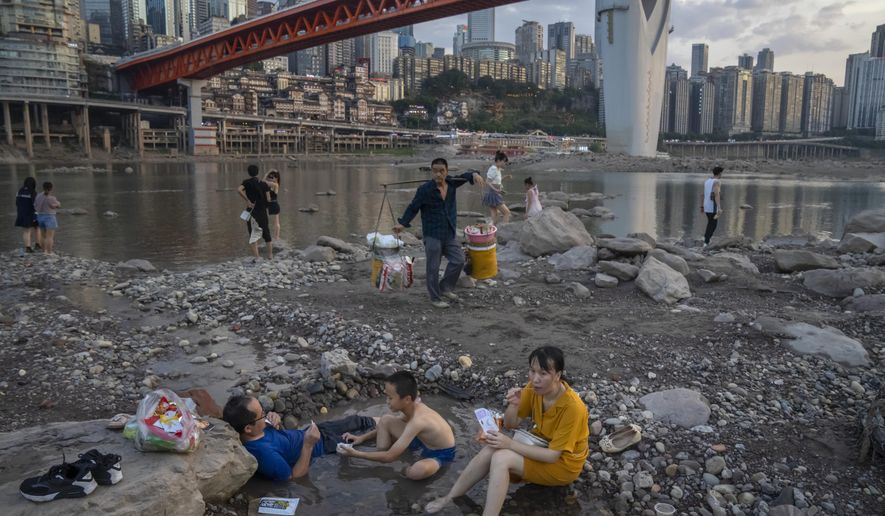Red China is red-hot, with a heat wave accompanied by a drought drying up the Yangtze River, crippling hydroelectric power in Sichuan province and the neighboring municipality of Chongqing.
The water level of the Yangtze has fallen to its lowest levels since record-keeping began in 1865, according to Bloomberg.
“The output of hydropower units has been seriously affected, and the power load in some provinces has grown rapidly. During the peak period of power consumption, demand-side management and orderly power consumption measures need to be taken,” read a statement from China’s National Energy Administration.
Chinese state data also indicates that the average precipitation in Sichuan has fallen by more than 50%, and that the total water storage capacity of Sichuan’s hydroelectric plants is 4 billion cubic meters less than previous years.
“80% of Sichuan’s power supply comes from hydropower. At present, the main reservoirs … have bottomed out, and the hydropower generation capacity of the province has dropped by more than 50%,” said Zhou Jian of the State Grid Sichuan Electric Power Company in a Chinese state press release.
Sichuan province is experiencing its worst drought since the 1960s, which occurred in the middle of Chairman Mao Zedong’s Great Leap Forward, according to Bloomberg.
Formal curbs on industrial output from factories in Chongqing, including those belonging to major automakers like Toyota, have been extended through Thursday, Reuters reports.
“We don’t know what to do until we see what the government tells us for next week,” a Honda spokesperson told Reuters.
Honda’s Chongqing plant produces small-engine products like lawnmowers and was responsible for 23% of the company’s power equipment last financial year. The factory suspended operations Monday.
The hydroelectric shortfalls have also affected consumers.
The Chinese government has mandated the shutdown of all but two Tesla Supercharger stations, which are now only open at night, in Sichuan’s capital Chengdu and in Chongqing, according to Bloomberg.
Nio, which operates battery exchanges that trade depleted batteries for used batteries, has also taken stations offline in the two cities.
The company has called on its consumers to share their home chargers with other EV drivers between Aug. 20 and Sept. 20.
Some drivers have already begun helping each other on their own initiative, trading full batteries for dead ones at Nio stations for other EV drivers to use, according to Bloomberg.
• Brad Matthews can be reached at bmatthews@washingtontimes.com.




Please read our comment policy before commenting.